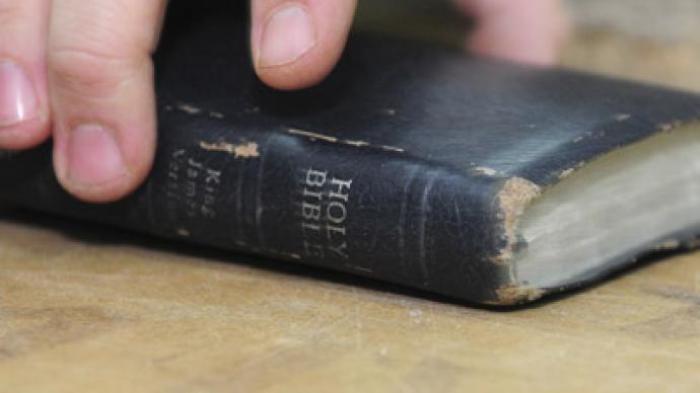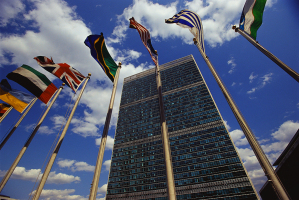'Gospel of Barnabas' That Claims Judas Was Crucified Instead of Jesus Is a 'Fake,' Says Coptic Patriarch Tawadros

Coptic Patriarch Tawadros II has said that the disputed "Gospel of Barnabas," a document that claims that Judas Iscariot was crucified in the place of Jesus, and that Christ predicted the coming of the prophet Muhammad, is a "fake" and the work of a "forger."
Fides News Agency reported on Friday that Tawadros said that the text, written in Syriac on animal hide, is "a book full of historical and geographical errors, the work of a forger."
Turkish authorities discovered the text in May 2012 in the building of Justice in Ankara, and claimed that it is 1,500-2,000 years old and was written by St. Barnabas, a disciple who became a Christian after Pentecost.
The "Gospel of Barnabas," as the text was dubbed, made international headlines back in 2012, with some Islamic voices predicting that it will trigger the "collapse of Christianity."
"God has hidden himself as Archangel Michael ran them (Adam and Eve) out of heaven, (and) when Adam turned, he noticed that at the top of the gateway to heaven, it was written 'La elah ela Alla, Muhammad rasool Allah (Allah is the only God and Muhammad his prophet),'" Iranian newspaper Basij Press claimed in 2012.
"The discovery of the original Barnabas Bible will now undermine the Christian Church and its authority and will revolutionize the religion in the world," it added.
The document also makes other allegations that contradict Christianity, such as the claim that Jesus ascended to heaven alive as a prophet, and not as the Son of God.
Christian scholars have dismissed the text, however, arguing that it's a forgery.
"If the document was written in the fifth of sixth century, it couldn't very well have been written by someone who was traveling with St. Paul about 400 years earlier," Catholic World News editor Phil Lawler said back in 2012.
"It must have been written by someone who was claiming to represent St. Barnabas. Should we accept that claim? Another good question."
The Vatican Insider has also concluded that the document is most probably a "hoax," and pointed out multiple historical inaccuracies. It also warned that the text is bound to cause problems among Christian-Muslim communities.
"This extraordinary discovery is probably a hoax, the work of a forger who, according to some, could have been a European Jewish scholar from the Middle Ages," it wrote in April 2012.
"Unfortunately, despite the fact that doubts and questions concerning the gospel were well-known, many Islamic media organisations have reported the gospel's statements on Jesus' predictions regarding Muhammad as if they were fact, something which will certainly cause problems at a ground-roots level, in terms of relations between Christian and Muslim communities, especially if the latter do not have a high level of education," the Vatican's newspaper added.





























